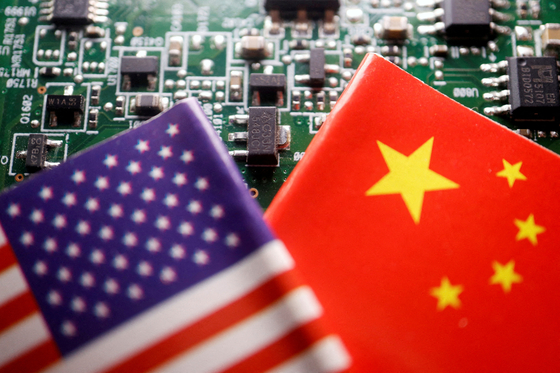The U.S. government is considering further restrictions on China’s access to advanced chip technology, according to Bloomberg on Wednesday, that could significantly hinder China’s capability to independently make AI chips.
The Biden administration is weighing limitations on access to the advanced chip architecture known as gate-all-around (GAA) as well as high bandwidth memory (HBM) chips, both of which are considered essential to the production of advanced AI processors.
GAA is a new type of transistor architecture that enhances performance while reducing power consumption.
Samsung Electronics already introduced the advanced architecture in its three-nanometer process in 2022, while TSMC and Intel have publicly announced plans to deploy the technology in their upcoming manufacturing.

The scope of the restriction and when it will come into effect haven’t been decided, according to the report.
The report also said the U.S. government is in the early stages of imposing export sanctions on HBM chips to China.
HBM is a type of premium dynamic random-access memory (DRAM) chip that is crucial to handling the heavy data processing required to run AI.
With SK hynix in the lead, Samsung Electronics and Micron are committed to developing and manufacturing the premium memory chips.
Whether the restriction will simply impede China’s access to the technology or go as far as limiting global companies from selling related products to China is not yet confirmed.
If the restriction is imposed on a wider scale, Samsung Electronics and SK hynix would be inevitably affected.
China’s chip manufacturing, although quickly catching up, has not officially succeeded in chips with nodes below seven nanometers, making it an important market for advanced chipmakers like Samsung.
With major U.S. AI chip designers like Nvidia opting for TSMC for manufacturing, clients in China remain significant for Samsung.
China also is a potentially big market for HBM producers because the country doesn’t have the capability to manufacture the most recent HBM chips. If broader sanctions should take effect, SK hynix’s HBM3 supply for Nvidia’s China-targeted H20 processor will have to be suspended.
China is currently focusing on producing second-generation HBM chips, which Samsung and SK hynix already did back in 2016.
Samsung Electronics shares closed up 1.73 percent from the previous trading day, while SK hynix also gained 1.18 percent at closing on Wednesday.
BY JIN EUN-SOO [jin.eunsoo@joongang.co.kr]




